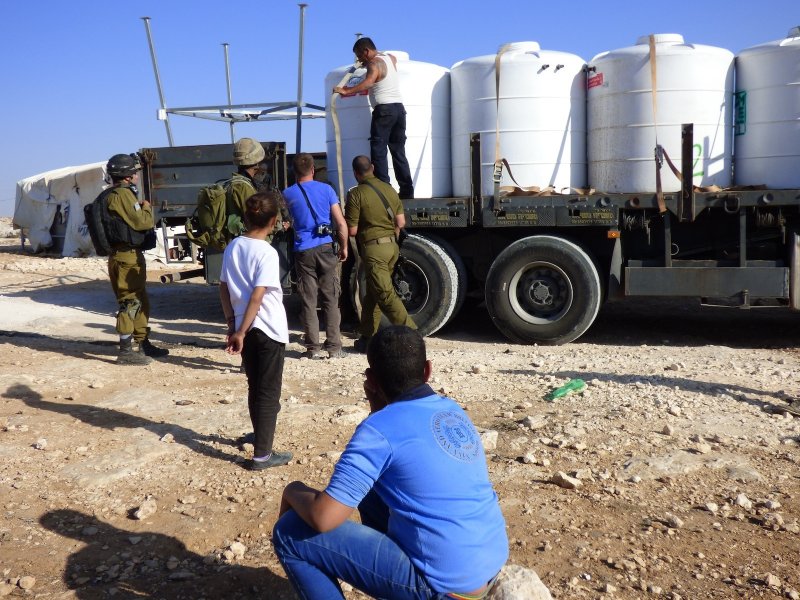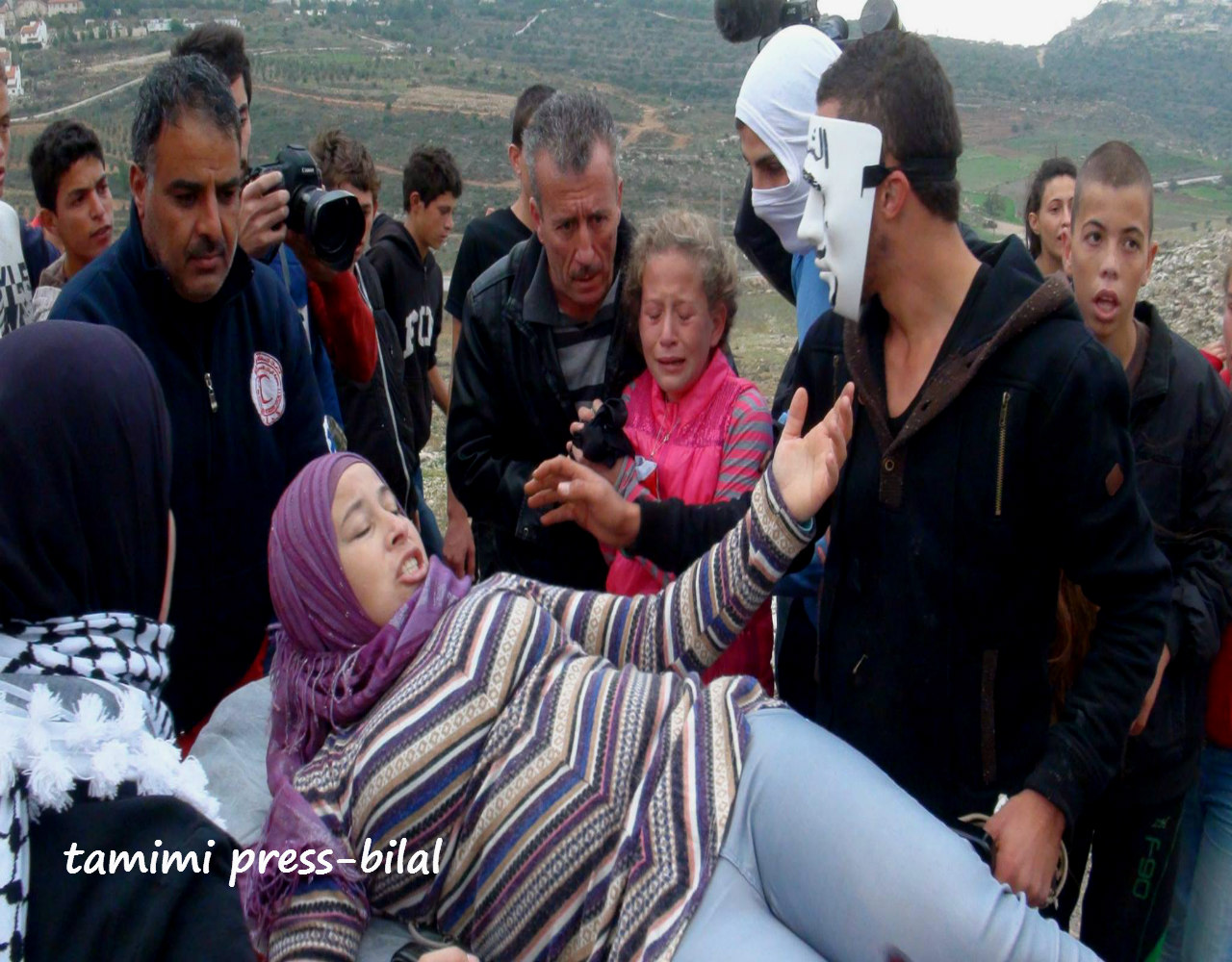-
Israeli military beat and detain young men in Hebron
23rd November 2014 | International Solidarity Movement, Khalil | Hebron, Occupied Palestine Yesterday evening Israeli forces beat and detained young Palestinians on Tel Rumeida hill in al-Khalil (Hebron). A twenty-two-year-old man was taken from the scene by an ambulance. Four others between the ages of eighteen and twenty-four were handcuffed and detained in a military […]
-
Israeli forces seize a tractor, its truck, four water tanks, and three bases from Susiya village
22nd November 2014 | Operation Dove | Susiya, Occupied Palestine On November 20th, the Israeli forces seized a tractor, its truck, four water tanks and three tanks’ bases from the Palestinian village of Susiya. In the early morning DCO [District Coordination Office] officers approached the Palestinian village to take pictures of the ongoing works to install […]
-
Three shot with live ammunition during Nabi Saleh protest
22nd November 2014 | International Solidarity Movement, Ramallah team | Nabi Saleh, Occupied Palestine Israeli forces shot and injured three Palestinians participating in a weekly Friday demonstration in the village of Nabi Saleh. Soldiers fired .22 caliber bullets, a form of live ammunition which has maimed and killed multiple Palestinians, even as Israel continues to claim it as a […]
Action Alert An Nabi Saleh Apartheid Wall Arrests BDS Bethlehem Bil'in Cast Lead Demonstration Denial of Entry Ethnic Cleansing Farmers Gaza Global Actions Hebron House Demolition International law Israeli Army Jerusalem Live Ammunition Nablus Ni'lin Prisoner Ramallah Rubber-coated steel bullets Settlement Settlers Settler violence Tear-Gas Canister Video



